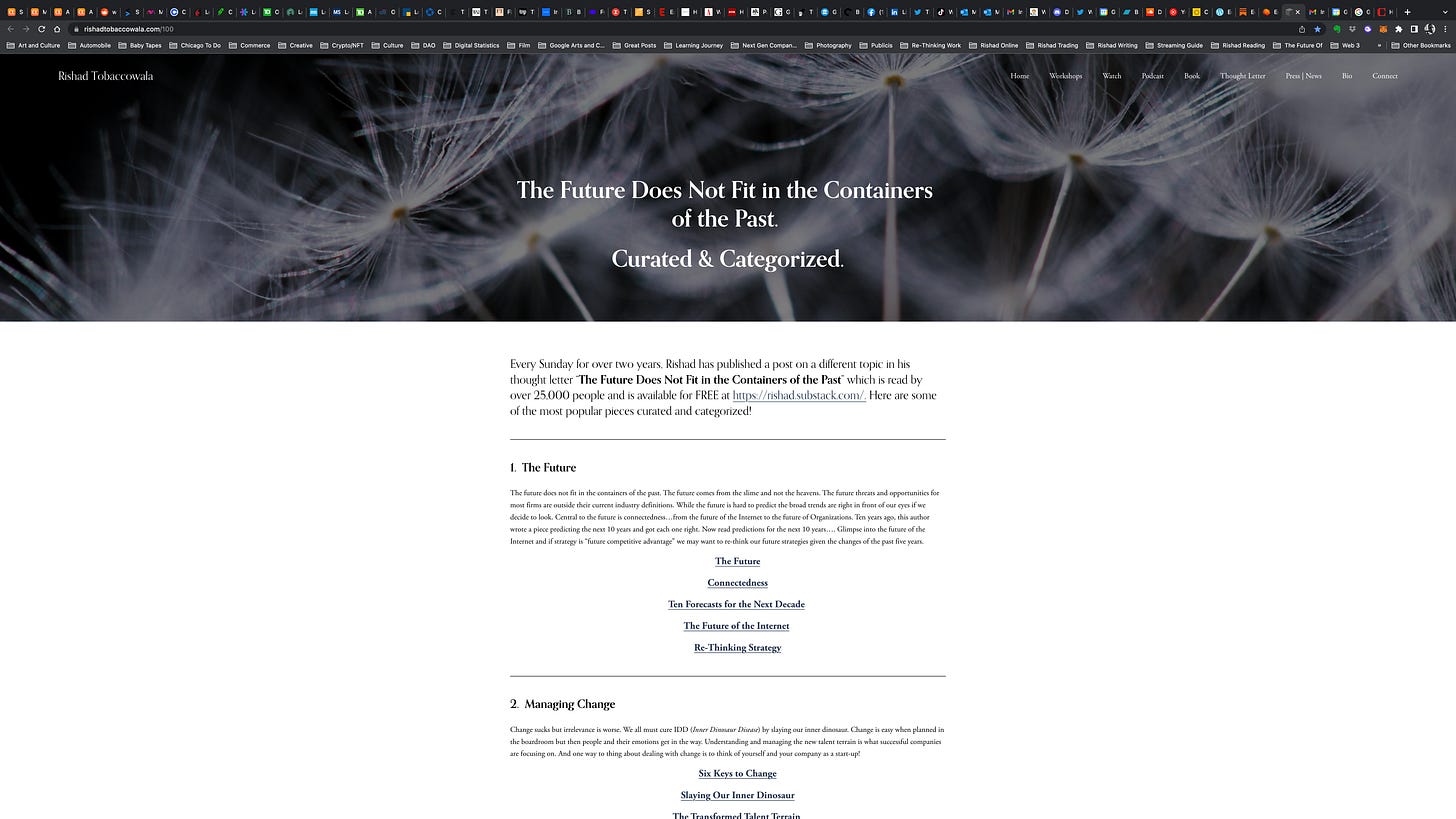Diverse Faces Are Not The Same As Diverse Voices.
The Future Does Not Fit in the Containers of the Past. Edition 110.
All leaders face many challenges today, including organizational designs built for the past vs. the present, hierarchical command-and-control management styles that do not resonate with a new generation and employees who question their intent.
One key change that companies are making to address these issues is to ensure that they have a more diverse work force that will resonate with the marketplace and with their talent.
Ensuring diversity is not just the right thing to do, but is proven to be good for the bottom line as a representative workforce is a competitive advantage when talent is key, change is widespread and new ways of looking at things become critical.
Importance of diversity of voices.
However, ensuring a diversity of faces is a necessary but insufficient step. Not only do companies need different faces around the table, but they also need diversity in thinking. We need to ensure that every person in a firm and around the table has a voice.
Most importantly, it is critical to have voices that can speak truth to power, question the status quo, call out potential issues and be heard without the risk of being punished.
Today some of the issues that need to be discussed including a) how the most successful companies and leaders self-defeat themselves by becoming deaf, dumb and blind to the reality around them, b) how mangers instead of re-inventing how they work and finding ways to maximize the benefits of in person interaction are coercing people back to the office breeding long term disdain and resentment and c) how The Third Connected Age of the Internet driven by AI, 5G, Blockchain, AR/VR requires a top to bottom re-thinking of business models.
There are voices that question and have suggestions on how to solve or mitigate these issues.
If such voices were listened to, many companies, such as Wells Fargo and possibly Boeing, would not have suffered their reputational and market valuation losses. There were people who knew there were issues, but they either kept quiet or were silenced or ignored.
Speaking up. Speaking out.
For true diversity it is key that people can call out the turd on the table when everyone else is celebrating what looks like a delicious brownie.
This is very difficult since the issues being called out are challenging. Financial impropriety. Cutting corners to make deadlines, which hurts product or service quality. Loathsome behavior by management. Incompetence in adapting to change.
In addition to the difficulty of speaking out, there is the risk of job loss, increased workload to fix the problem, career blackballing and, of course, the possibility of being wrong.
But speaking one’s mind is not just important in helping to avoid big problems or issues. It also creates an environment that helps day-to-day business.
· Increases effectiveness of teams: The best teams feel connected to each other and feel a sense of empathy and trust. Straight talk helps foster these qualities.
· Gets to the root of problems: Continuous improvement is critical in a fast-moving competitive age. This means identifying threats, weaknesses, and issues. These are much easier to do when voices are not stifled.
· Fosters creativity and innovation: For great ideas and creativity we need trampolines of trust and an environment where disruptors can disrupt without having their lives and careers disrupted.
How to unleash the voices within.
Speaking up is difficult in all circumstances but particularly if management and the culture is not supportive.
Studying many companies and organizations, including firms as diverse as Pixar and the Navy Seals, has revealed some best practices that one can unleash to encourage diversity of voice.
· Ask everyone to speak, from the most junior to the most senior.
· Celebrate truth-tellers and status quo breakers when they are right with promotions and financial rewards.
· Bring in outside voices to share cases from outside and run workshops.
· After each project ask how things could have been done better.
Management should ask people to build a case for why the decision being taken by management is wrong. A postmortem before the project has begun allows people to say what they need to.
Being sensitive to diversity of voices as much as to diversity of faces will ensure long-term success for companies.
Photography by Jan von Holleben
Two years of writing ( three full length books) now organized & accessible FREE:
Click here:
A resource for every subscriber of this thought letter! The best of 2 years of writing curated and organized on one web page that you can can book mark to access anytime you would like to stimulate your thinking. And an easy way to share with anybody. Constantly updated and completely free! Click here
For more about Rishad Tobaccowala click here.






Thank you for these great nuggets of wisdom. I particularly like "The best teams feel connected to each other and feel a sense of empathy and trust. Straight talk helps foster these qualities." I also found this HBR article relevant & quite interesting: https://t.co/osDHRVF3lS
My personal experience was that explaining worst-case-scenarios and unintended negative consequences of big decisions being made by top management is fraught with peril if you turn out to be right. For example, telling Y! the consequences of putting its ad inventory into a machine that gave the buyer full transparency into the supply side inventory would destroy pricing - well, that was not good for my career because it turned out to be correct way too late to matter. Telling large agency holding companies that the end game for creating digital buying arbitrage desks was very ugly was terrible for my consulting business. When you predict dire consequences and you are WRONG, people appreciate you for sharing your opinion and bring you back into the fold. But, when you are right, you become a threat because you are living proof that management should have known that the turd on the table was going to soon become a pile of sh*t.